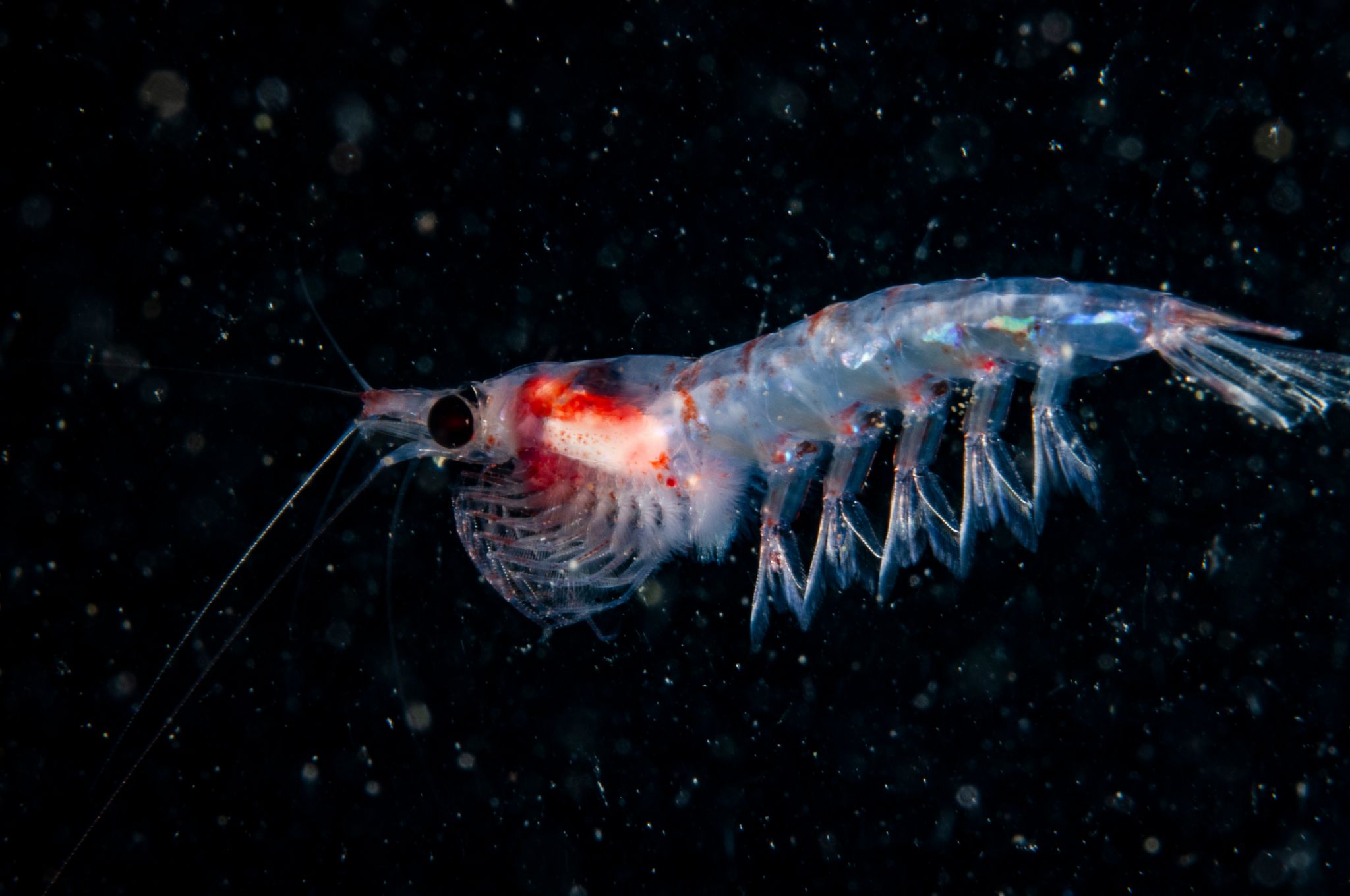What is krill?
Krill is a small marine crustacean belonging to the euphausiid family. It is found in the cold waters of the oceans, mainly in the Antarctic. They feed on phytoplankton and form the basis of the food chain for many marine animals, such as whales, penguins and seals.
Krill is an important source of essential nutrients for these animals, but it has also been recognised as a beneficial food supplement for humans. Its benefits and use as a food supplement will be discussed in more detail in this article.
What are the benefits of krill?
Krill is rich in omega-3 fatty acids, particularly eicosapentaenoic acid (EPA) and docosahexaenoic acid (DHA). These essential fatty acids are important for the health of our brain, heart and joints. They also play an important role in reducing inflammation in our bodies.
In addition to its fatty acids, krill also contains antioxidants such as vitamins A and E, as well as astaxanthin. Astaxanthin is a powerful antioxidant that can help protect our cells from damage caused by free radicals.
Finally, krill is an excellent source of high-quality protein. A 100g portion of krill contains around 15g of protein, making it an interesting addition to the diet of vegetarians or vegans who find it difficult to get enough protein in their diet.
Where does the krill used as a dietary supplement come from?
The krill used as a food supplement comes mainly from the Antarctic, where the waters are particularly pure and free from pollutants. It is fished in accordance with quotas set by the Commission for the Conservation of Antarctic Marine Living Resources (CCRVMA).
It is important to note that krill is a valuable marine resource and must be harvested in a sustainable way to preserve the marine ecosystem. It is therefore advisable to choose krill-based food supplements from sustainable sources certified by organisations such as Friend of the Sea.
How can krill be used as a dietary supplement?
Krill is generally taken in capsule or tablet form. The recommended dosage varies according to the concentration of omega-3 in the product. On average, a daily dose of 1 to 3g of krill is recommended to reap its benefits.
It is preferable to take krill with a meal, as this can help improve its absorption by the body. However, it is always advisable to follow the specific instructions on the packaging of the product you are using.
The benefits of krill compared with other sources of omega-3s
There are other sources of omega-3, such as fish oil, but krill has certain advantages over these alternatives. Firstly, thanks to its small size, krill does not accumulate as many pollutants as larger fish, making it safer to eat.
What's more, the omega-3s in krill are in the form of phospholipids, whereas those in fish oil are in the form of triglycerides. This difference may mean that our bodies absorb the omega-3s better when they are in the form of phospholipids.
Finally, krill also contains astaxanthin, a natural antioxidant not found in fish oil. Astaxanthin can help protect omega-3 fatty acids from oxidation, making them more effective at fighting inflammation.
Precautions to be taken when taking krill as a dietary supplement
Although krill is generally considered safe for human consumption, it is important to take certain precautions when using it as a dietary supplement. First of all, it's important to make sure you're not allergic to seafood before taking krill.
What's more, as with any dietary supplement, it's advisable to consult a health professional before starting to take it, especially if you have any health problems or are taking any medication, as there may be interactions.
It is also important to follow the instructions for use and not to exceed the recommended dose, as over-consumption of krill can lead to undesirable effects such as stomach upset, nausea and diarrhoea.
In a nutshell
Krill is a beneficial dietary supplement for our health, thanks to its richness in omega-3 fatty acids, antioxidants and high-quality protein. It can be an interesting alternative to other sources of omega-3 such as fish oil.
It is important to choose krill from sustainable sources and to follow the precautions when taking it as a dietary supplement. Finally, don't forget to consult a health professional before starting to take it to make sure it's right for your personal situation.
Include krill in your diet to enjoy its many health benefits!











